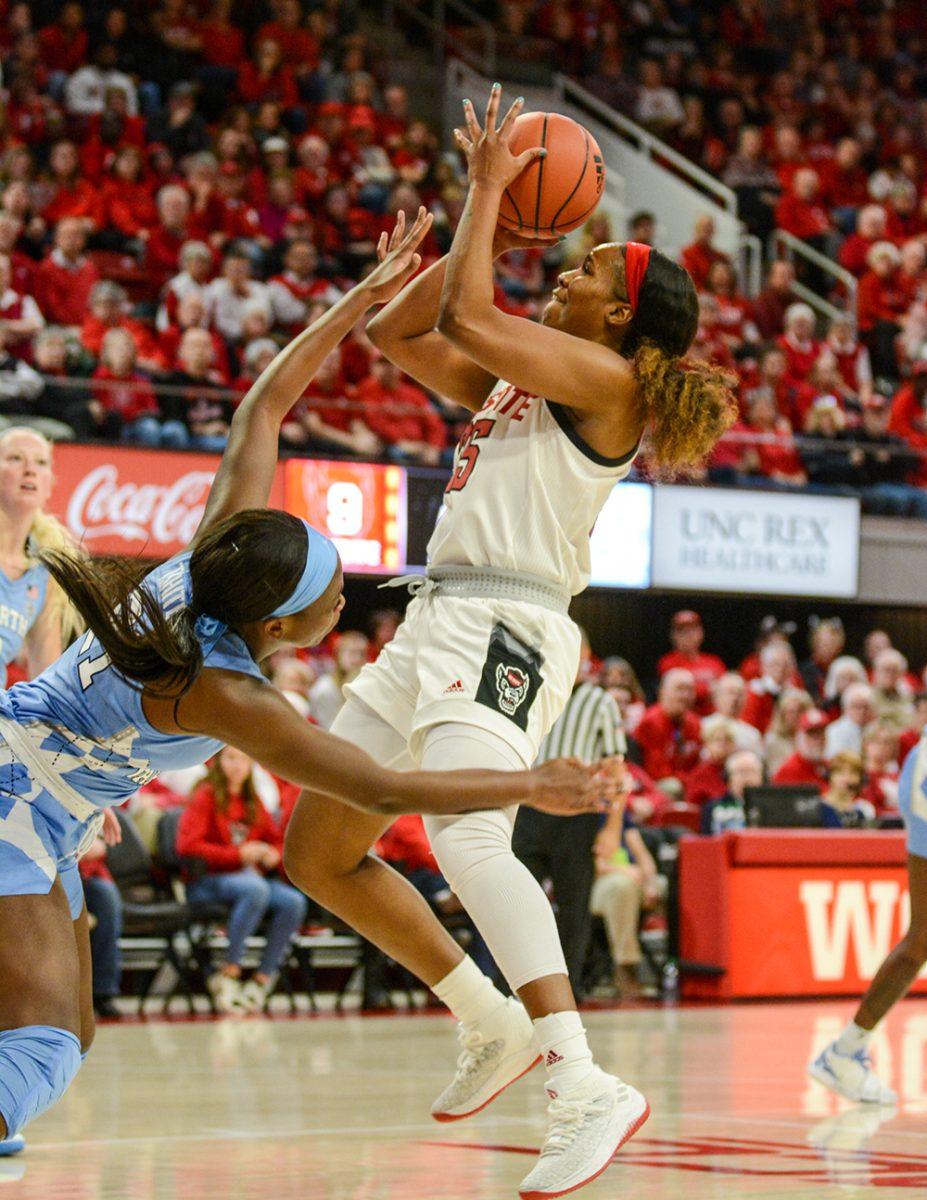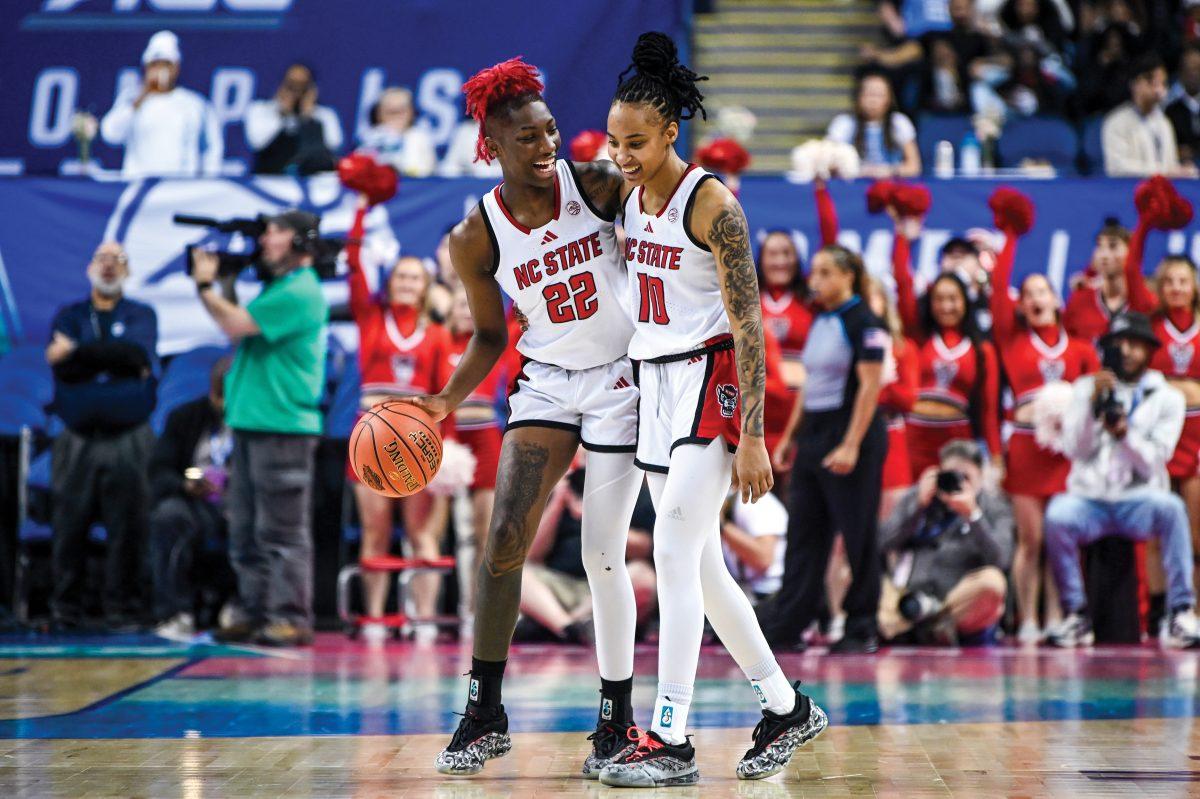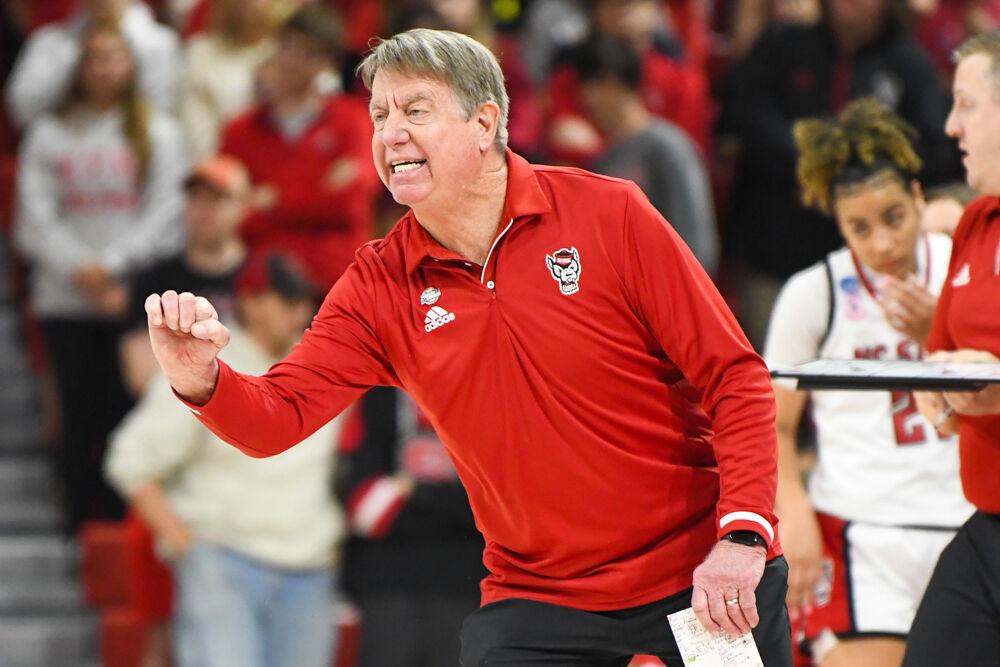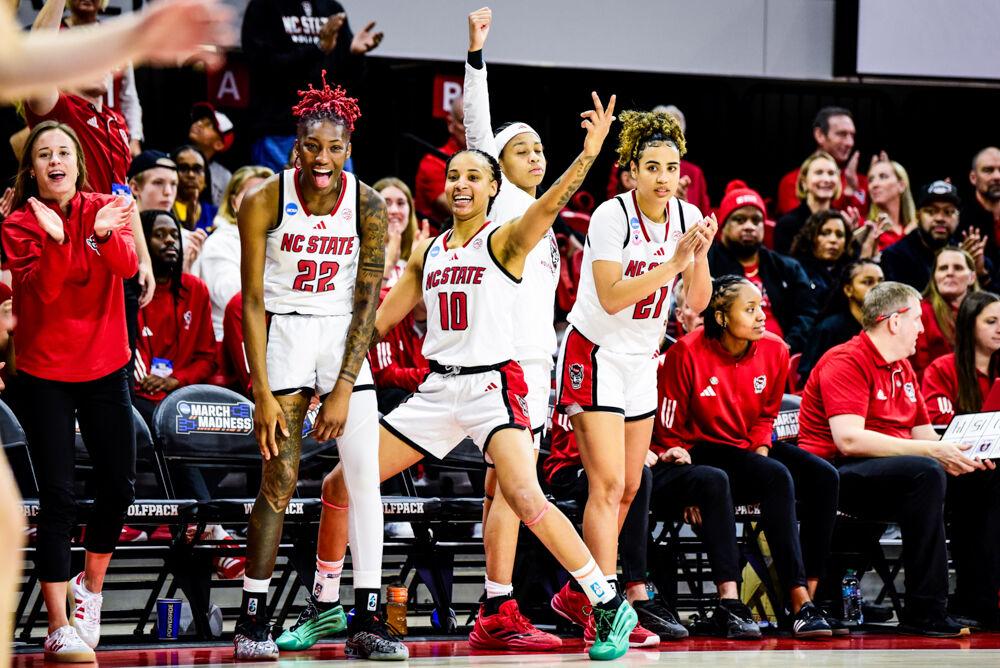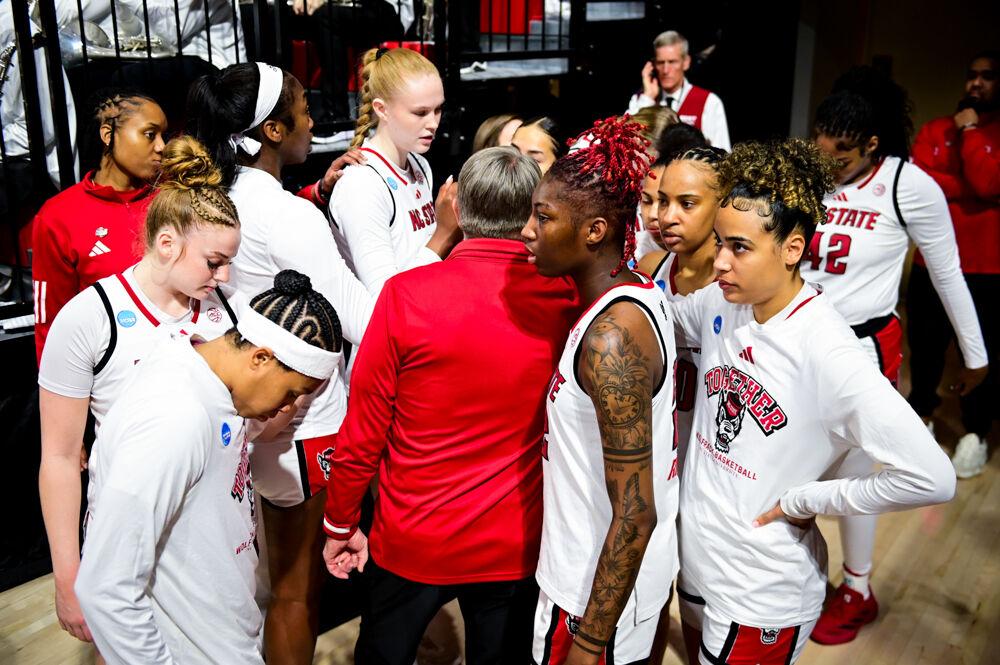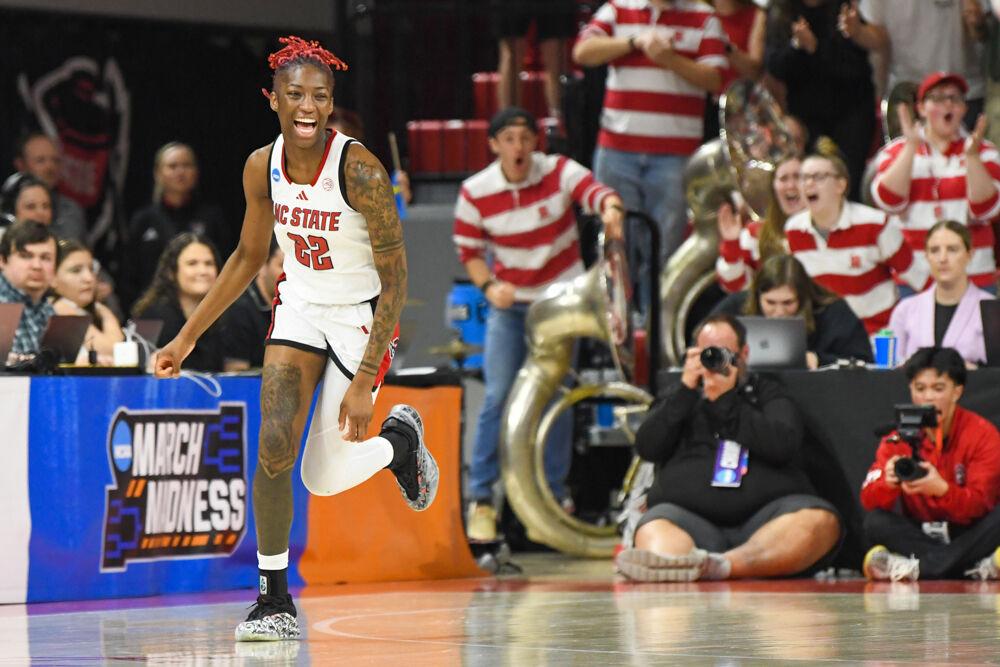The NC State women’s basketball team will travel to Blacksburg, Virginia to take on the Virginia Tech Hokies and wrap up a three-game road trip that included a dominant victory over Clemson and an exhilarating win at Duke. The Hokies (16-5, 6-4 ACC) have won four of their last five games, with just one slip up against Syracuse in a two-point loss, and aim to give the Pack (21-1, 10-1 ACC) a challenge before the team returns home to face the top dog of the ACC, the No. 5 Louisville Cardinals.
In terms of statistical categories, the Pack outranks the Hokies in nearly every facet, but the margin is tight. However, the Pack has nearly 40 more assists than the Hokies, displaying an elite ability to run a spaced offense, one that ranks fourth in the ACC in points per game, and places the Pack at first in the ACC in scoring margin, with a plus-19.4 average point differential.
Virginia Tech is led by high-scoring guard Aisha Sheppard, who leads the team at 16.1 points per game as well as 3-pointers made and attempted. Sheppard shoots 38% from deep, tied with guard Dara Mabrey for highest percentage on the roster, with both players being the only ones on the roster to take more than 100 3-pointers this season.
Similarly, junior guard Kai Crutchfield and senior guard Aislinn Konig are the only Pack players to take over 100 of such shots, though freshman wing Jakia Brown-Turner is close behind. Outside of Sheppard and Mabrey, the Hokies do not have many other players that are threats from outside, whereas the Pack has, at minimum, four threats from deep in Konig, Crutchfield, redshirt senior guard Grace Hunter and junior forward Kayla Jones.
If the Pack can successfully shut out the Hokies’ two shooters, it leaves Virginia Tech with no other choice than to attack the paint offensively with 6-foot-5 center Elizabeth Kitley, who will be matched up with sophomore center Elissa Cunane inside.
Kitley is having a phenomenal freshman season, echoing what Cunane was able to accomplish in her freshman season last year. Kitley averages 11.2 points and 7.3 rebounds per game and leads the team with 41 total blocks.
The area that the Hokies outrank the Pack is in total size. The Hokies average around three fewer rebounds per game than the Pack, but have multiple players that are capable of grabbing up 10 or more boards in a given game. Kitley, forward Trinity Baptiste and forward Lydia Rivers all average over seven rebounds per game, while the Pack only has two players that do the same.
Virginia Tech’s three impressive forwards have also accounted for 78 blocks and 146 offensive rebounds. Meanwhile the three best offensive rebounders for the Pack, Cunane, Jones and freshman forward Jada Boyd, have 46 blocks between them and 146 offensive boards, with one more game played than the Hokies.
Both the total amount of offensive rebounds and blocks by the Pack’s players are skewed by the presence of Cunane, with Jones and Boyd accounting for 81 offensive boards and 19 blocks alone. This is in stark contrast to Baptise and Rivers, who have 98 offensive rebounds and 37 blocks alone, despite having played one less game.
If the Hokies can handle Cunane inside, or at least cancel out her production with the help of Kitley, the Pack will need to get creative with its rim protection and ability to get boards. Virginia Tech also ranks second in the conference in free throw percentage, so the Pack needs to avoid mindlessly throw bodies at the rim.
While the Hokies are not ranked, and have lost four conference games, the team is close to NC State in statistics, and should not be overlooked. Head coach Wes Moore always takes a game-by-game approach, and he needs to orient his players to focus on escaping Blacksburg before turning its focus to Louisville.
The game between the Pack and Hokies begins at 7 p.m. on Thursday, Feb. 6 inside Cassell Coliseum. The game can be viewed on ACC Network Extra, for fans wishing to support the road warriors.


